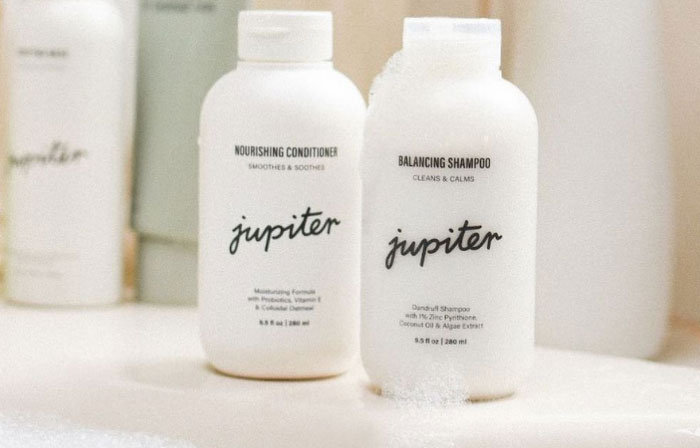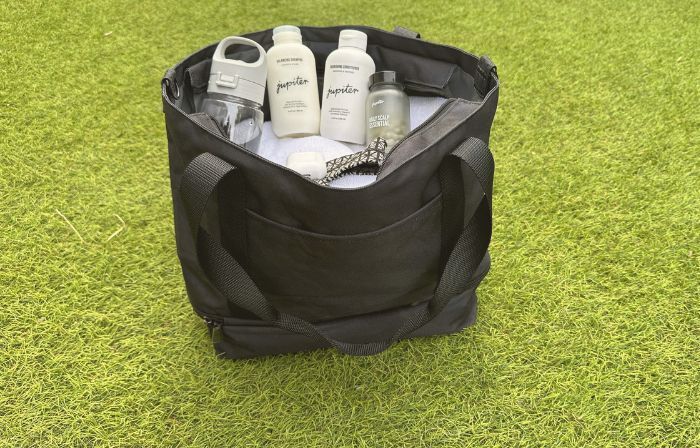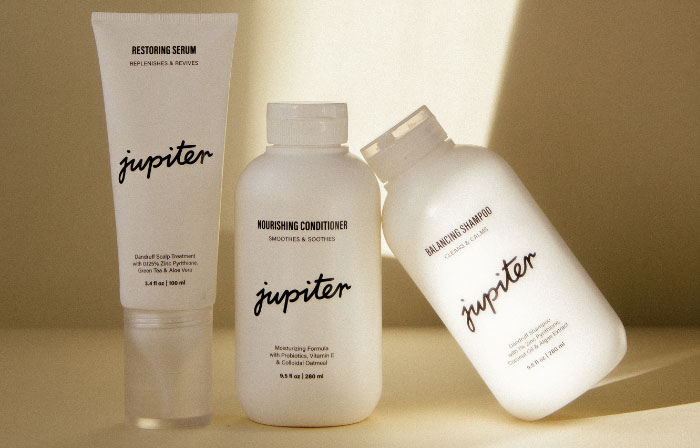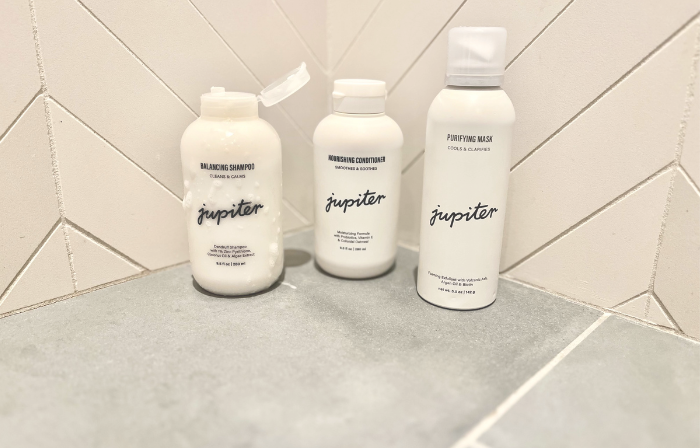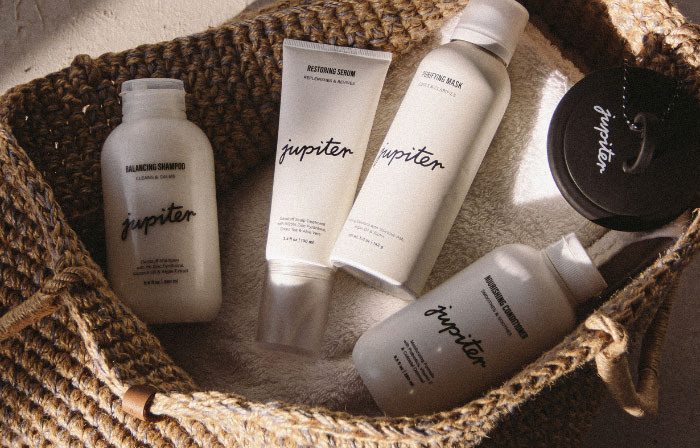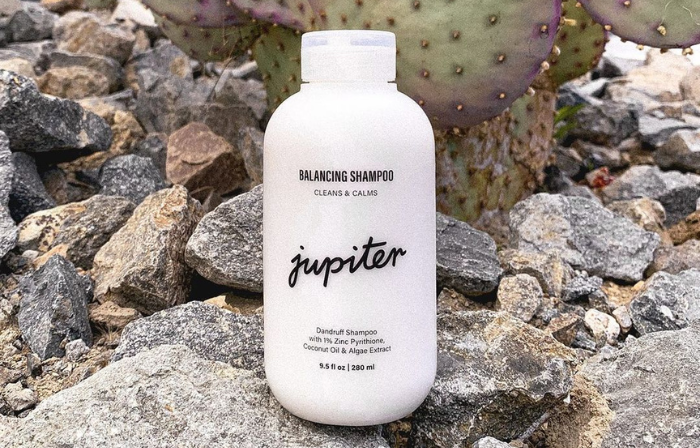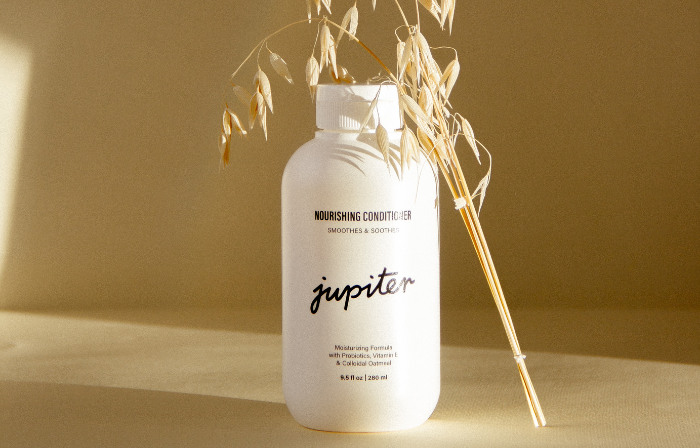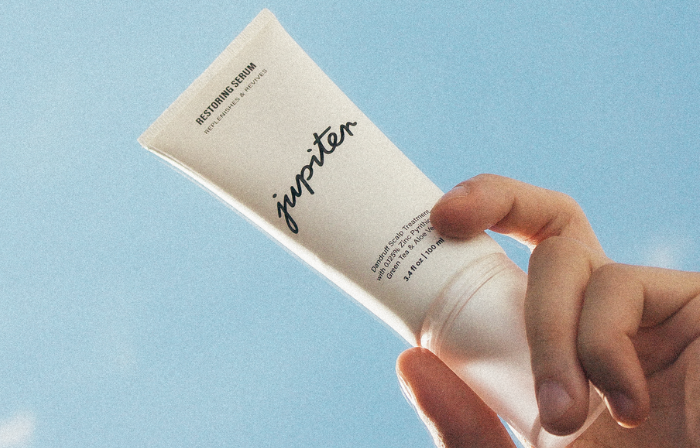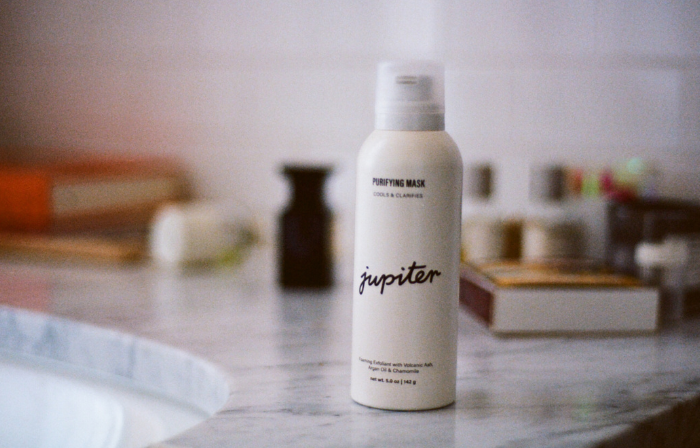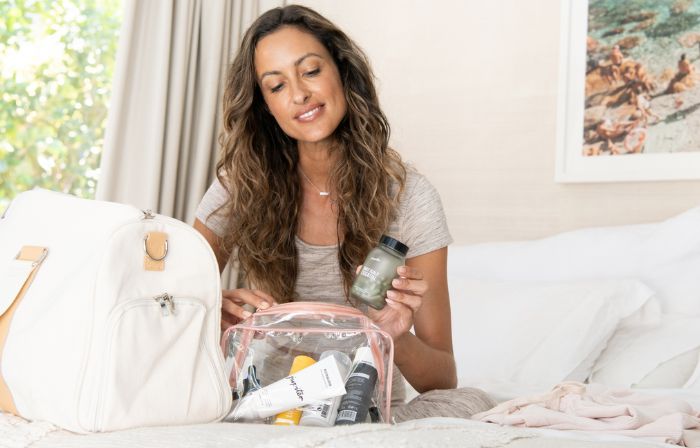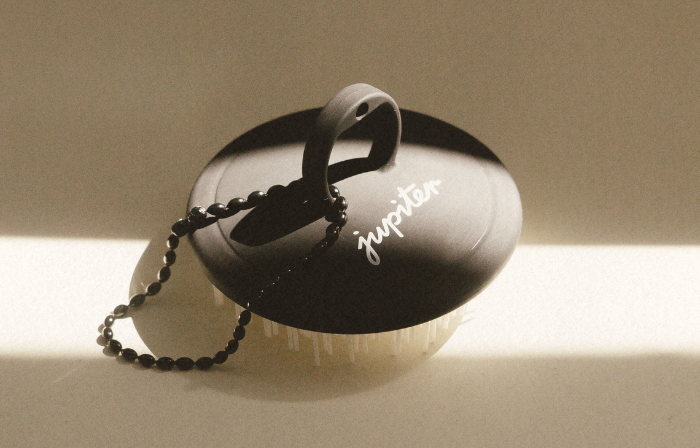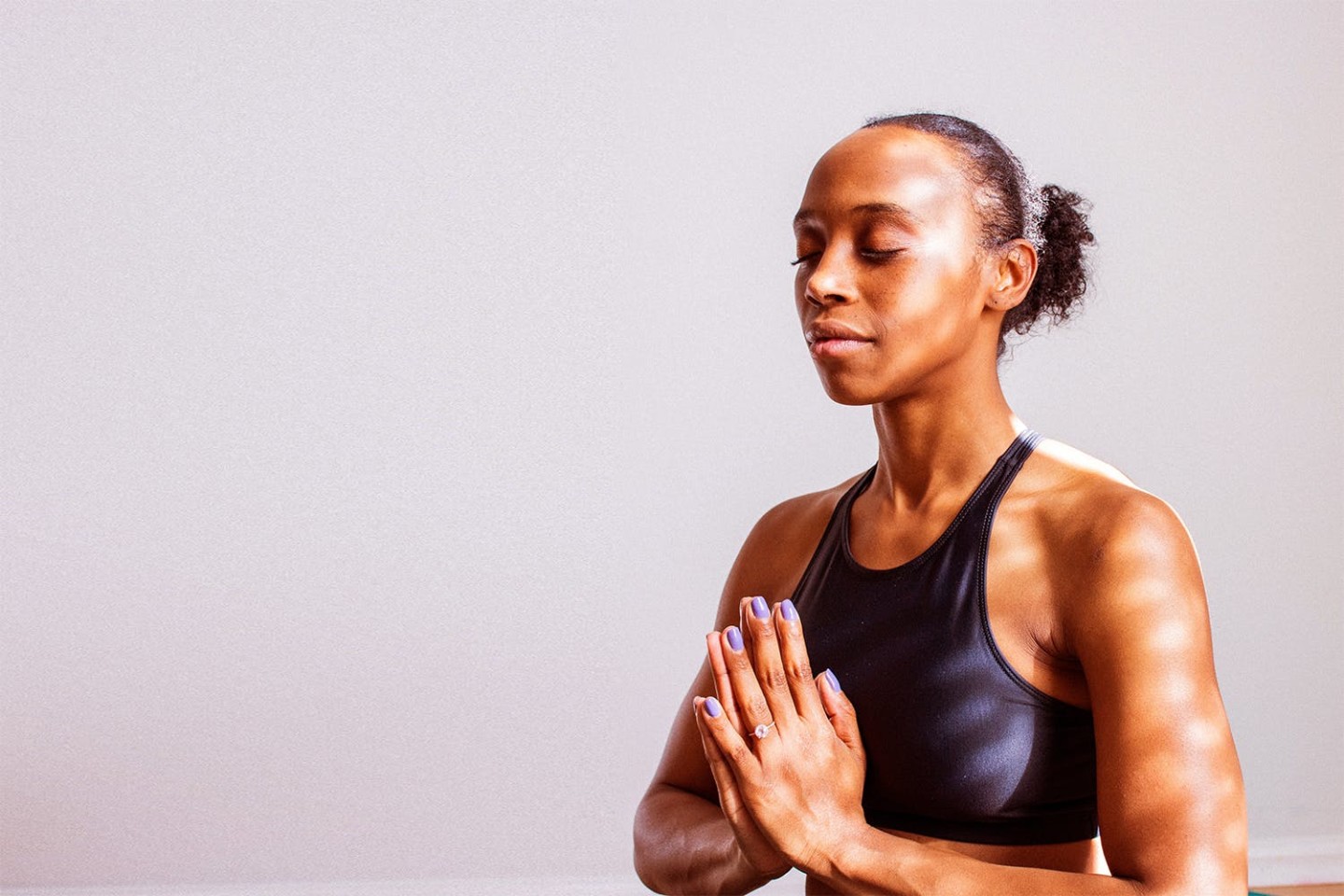If you’re struggling with dandruff, you’re in good company. Very good company. Over half of the population deals with flakes eventually, and even babies get dandruff (or “cradle cap,” as pediatricians call it).
You probably already know the first and most important step to solving dandruff: regular use of a dermatologist-tested medicated shampoo containing Zinc Pyrithione. But here’s a little secret - there are a handful of simple home remedies and lifestyle changes you can make in addition to shampooing properly to help kick flakes to the curb. We’ll get into that shortly. But first, let's explore the root cause of dry skin and flaky, itchy scalps.
What’s the Deal With Dandruff?
Dandruff is flaking and itchiness caused by irritation of the scalp. The cause of dandruff can be any number of underlying issues, including seborrheic dermatitis, eczema, and dry scalp. This leads to an imbalance in your scalp microbiome that causes skin cells to die, and those dead skin cells shed away in pesky white flakes. Despite what you might think, dandruff is not a sign of bad hygiene or bad hair care.
While there’s no cure for dandruff, you can treat dandruff so simply and effectively that you never think about it again. That means, first and foremost, a Zinc Pyrithione-based shampoo used every day. But small, manageable tweaks to your daily routine can also help keep irritation down and let the medicated hair product do its job.
Here are the top 8 ways to help reduce dandruff beyond rinsing with medicated shampoo:
1. Clean Up Your Diet
Limit sugary food, dairy products, and fried foods, which can all increase the natural oil production in your sebaceous glands of your scalp and skin. (It’s the same reason you might have an acne breakout after indulging in junk food.) Increase your intake of fruits, veggies, and other anti-inflammatory foods.
A balanced diet also promotes a healthier immune system. Though the exact reason is unclear, a link has been established between dandruff and compromised immune systems. Dandruff is a common side effect for patients undergoing radiation treatment or taking immunosuppressants.
2. Reduce Stress
Stress can do a number on your hormones and throw your immune system out of whack. This can trigger flare-ups of skin conditions like eczema, scalp psoriasis, and seborrheic dermatitis, which can all cause scalp irritation, dryness, and flaking.
Sleep is the perfect natural remedy for stress. Getting enough rest can also help reduce your caffeine intake, which soothes your stress response. Beyond that, you can make time to exercise and find healthy ways to decompress after a long day.
3. Keep the Sun Off Your Scalp
Excess sunlight can dry out your scalp and increase flaking. Keeping your scalp properly moisturized starts with protecting it from the elements. The easiest way to do that is to wear a hat, but you can also rub an over-the-counter sunscreen into your scalp (spray-on products are easier to work in through your locks).
4. Mind the Humidity
As the weather changes throughout the season, you might notice a pattern to your flare-ups. Some people may see flakes and an oily scalp as the humidity skyrockets, while others notice a dry scalp and flaking in the dry season.
If you’re running your heater or AC all the time, it can dry out the air. Or if your house has poor ventilation, you may deal with a lot more moisture. Sometimes it’s just the time of year that changes the moisture content of the air. Either way, you can use a humidifier or a dehumidifier in your room to bring things back into balance.
Stress can do a number on your hormones and throw your immune system out of whack. This can trigger flare-ups of eczema, scalp psoriasis, and seborrheic dermatitis, which can all cause scalp irritation and flaking.
5. Stop Scratching
This is a tough one. It’s hard to resist scratching an itch, but remember: digging, scraping, and picking at your scalp will only make things worse. When you scratch, your nails can break the skin on your scalp and cause further irritation. You’re also likely introducing more contaminants (i.e. dirt and grime) to your hair, which may lead to clogged hair follicles and further irritation.
If you can’t keep your hands out of your hair, try a gentle massage instead. Or better yet, check out our next tip.
6. Exfoliate Your Scalp
If you’re dealing with dandruff, there’s something out of balance in your scalp. Excess dead skin and oily scalp may be clogging your pores, and Malassezia yeast are likely running rampant. If you really want to help cleanse your scalp, you need a scalp brush.
A scalp brush is a specially-designed tool for exfoliating your scalp. It’s an incredibly helpful (and often neglected) tool in your scalp care arsenal. The bristles on a scalp brush are the perfect size for cleansing your pores, gently brushing away excess skin cells, and stimulating blood flow to your scalp. This can help you clear out existing dandruff while thickening your hair follicles and slowing down the hair loss associated with dandruff.
Scalp brushes are also ridiculously satisfying to use, and help transform your shower into a mini-spa. Speaking of which, let’s talk about showers...
7. Be Consistent
As with any skin care, it’s crucial to develop a regular scalp care routine and stick to it. The longer you go between washes, the more dirt, dust, and oil will collect on your scalp, making the dandruff cycle ever harder to break.
Would you skip a day brushing your teeth? No - and you shouldn’t skip regular shampoo treatments, either. If you let up, your flakes will come back in a hurry - and perhaps worse than before. Consistency is absolutely key to solving scalp irritation and banishing flakes.
Normal drugstore shampoos can actively make things worse - including brands that supposedly fight dandruff. Harsh surfactants like sodium lauryl sulfate tend to strip your hair and scalp of its natural defenses. Look for a Zinc Pyrithione dandruff shampoo that is also formulated with gentle, naturally-derived ingredients.
8. Ditch DIY Scalp Products
Spend a few minutes researching and you’ll come across all kinds of homebrew dandruff shampoos and hair mask treatments. These enticing DIY recipes use natural ingredients like baking soda, tea tree oil, apple cider vinegar, aloe vera, and coconut oil to supposedly address your flaky scalp.
We understand the appeal, but trust us - some things are best left to the experts. Dandruff shampoos require a delicate mixture of cleansers, antifungal agents, gentle surfactants, moisturizers, and balancing agents to get the job done. It’s serious chemistry. Get it wrong and you’ll wind up wasting expensive ingredients while making the dandruff worse.
Stick with a professionally designed, Zinc Pyrithione-based dandruff shampoo made with beautiful, natural ingredients like salicylic acid (derived from willow bark), soothing coconut oil, and gentle lavender. And make sure it’s free of sulfates, parabens, and other unsafe ingredients.
As long as you keep up the fight in your daily routine - and make these simple, effective lifestyle changes - you can help bid farewell to your flakes.
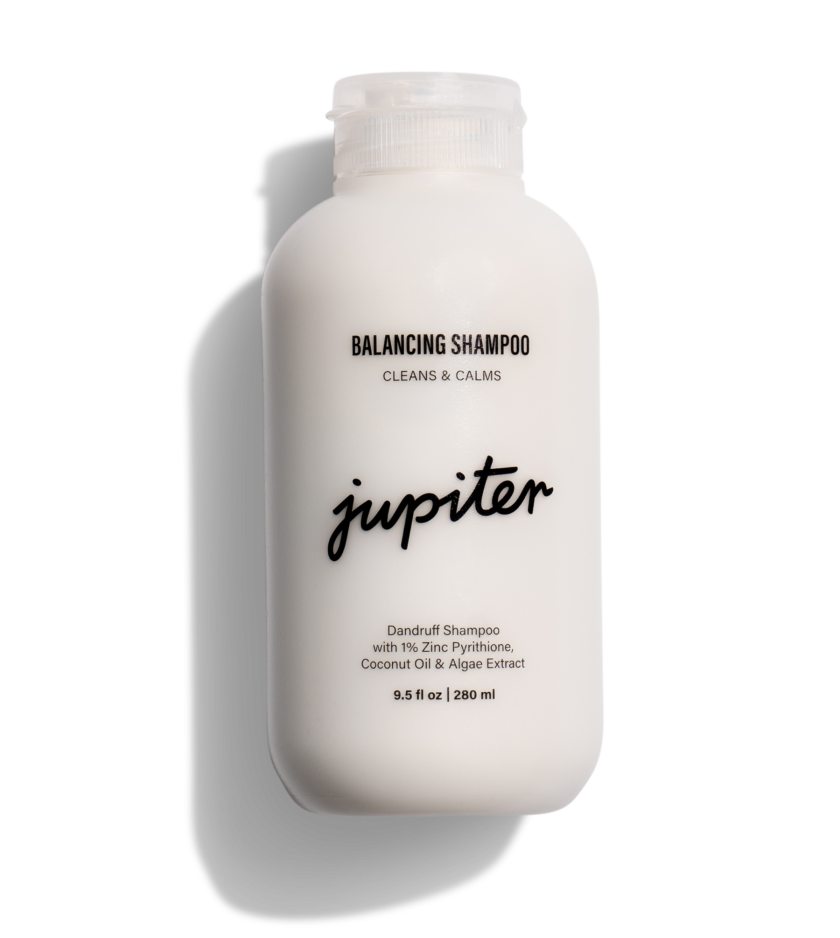
Meet our head honcho. This soothing multi-tasker gets to the root of flaking and irritation, thanks to our star active ingredient, Zinc Pyrithione. Backed by a lush aroma of mint, vanilla, rosemary, sage, tangerine, and lavender, it’s bound to elevate your mood, and your shower.
